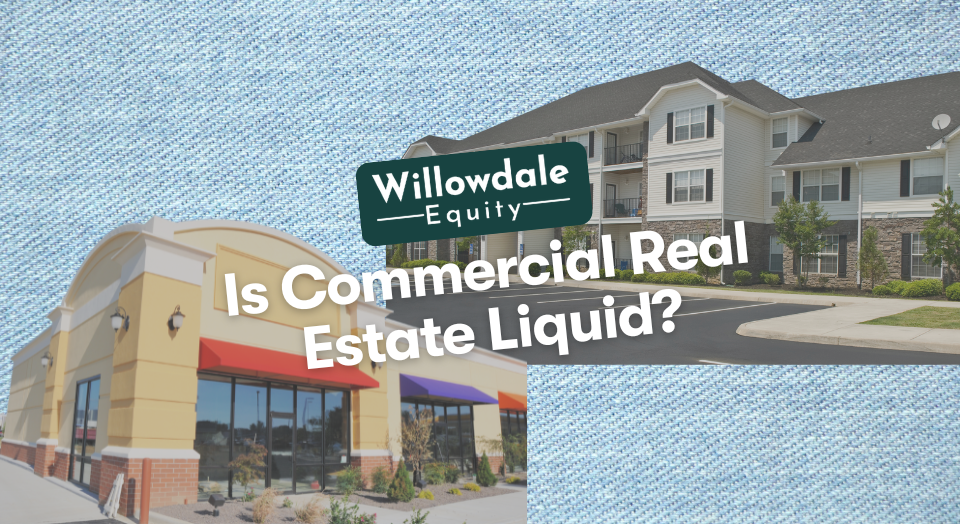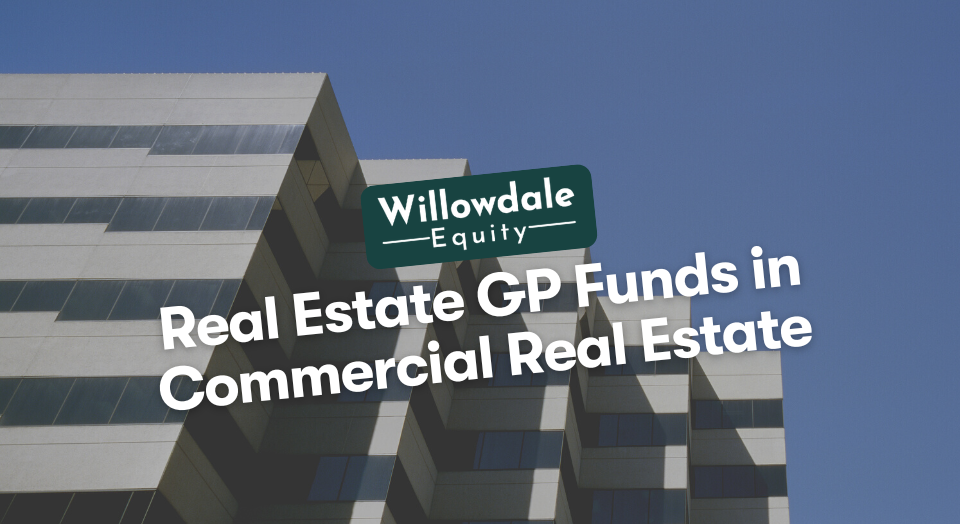
Is Real Estate Liquid? And Is Commercial Real Estate Liquid?
This article is part of our passive investors guide on real estate syndications, available here.
Because commercial real estate transactions take years to complete and because there are multiple investors and multi-year financial commitments, these types of investments are better left to people with a lot of experience and patience with these types of transactions. They are long-term investments for future earnings.
Any time a commercial property like an apartment community, a retail plaza, or any property where making cash flow is the objective, the investors must be willing to commit for the long term.
How much or how little risk to purchase or be part owner of an investment property is something to discuss with your partners and if selling is in the immediate, near term or whether or not they feel confident regarding the real or intangible value of having a property such as these in the portfolio.
Key Takeaways
-
In the traditional sense, real estate investing has not been considered a liquid asset and, therefore, should not be considered for immediate cash needs.
-
Although real estate assets would not be considered a liquid asset in terms of speed, which can convert into ready cash, we must view this in the context of other factors.
-
Several factors determine real estate liquidity, including location, transaction costs, the local market, condition, and availability.
What qualifies as a liquid asset?
The most liquid asset is cash. Typically a liquid investment can be deposited into a bank account quickly and efficiently in one or two days. Liquid investments include currency, a savings account or multiple savings accounts, stocks, a mutual fund, money market accounts, money market funds, financial instruments, securities, or other cash equivalents.
Liquidity refers to the efficiency of conversion of assets and securities into ready cash without altering market prices, especially when one is experiencing financial hardship. A checking account is highly liquid in that getting the cash is as simple as cutting a check; however, an emergency fund is not the place too many people in the business world are going to look for real estate investing.
How is Real Estate a Liquid Asset
Although real estate assets would not be considered a liquid asset in terms of speed, which can convert into ready cash, we must view this in the context of other factors. Several factors determine real estate liquidity, including location, transaction costs, the local market, condition, and availability.
The other liquidity factors that need to be determined are discussed in the next paragraph because most investors’ tolerance for risk versus liquidity could be different. With the financial crisis of 2008, many investors kept what they had to preserve value, liquidity and refused to sell off their illiquid investments.
Doing so could very well have eroded their venture capital for other assets they wanted. Even in a rising interest rate environment, real estate investing is still part of a safe investment strategy; however, do not rely on one or multiple investment properties to be a quick answer for a short-term, possibly one-time need for cash.
What is liquidity in real estate?
Liquidity in real estate is based on two factors, yields and liquidity. Yields create revenue and cash flow. Liquidy is determined by the investor’s ability to exit the project successfully.
The investor MUST look at other factors to assess their liquidity position upon consummation of the project, the amount of capital invested in the project, and whether or not they want to commit more time and capital to any future re-investment strategy in the project. With a primary residence, the easiest way to obtain liquidity is by modifying and refinancing your mortgage payments.
Liquid Real Estate Investments
Because real estate property can generate cash flow, albeit, at a slower pace than stocks, mutual funds, or cash, these investments are for those with access to capital, with the most liquid assets of all the illiquid being real estate investment trusts. These properties are publicly traded, and the securities are set up and managed by a portfolio manager or a whole team of managers.
These properties include retail, multifamily housing units, mortgages, health care facilities, timber, storage, lodging, and office buildings. Multifamily properties are the most straightforward investment properties to invest in and will be covered in the next section. For many people at retirement age, a reverse mortgage or HECM is the answer. This way, they receive cash every month instead of paying out every month.
Related Read: Do Stocks Outperform Real Estate?
Multi-Family Property

A multifamily property produces rental income and is any property with more than one unit, but to be considered commercial, they would need five-plus units.
They might have their utility hookups and a separate entrance from each other. The owner(s) do not have to live in the property. If you and your partners do not live on the property, the property qualifies for investment rate financing.
There will be adjustments to the loan to value maximum. It is best to discuss with either a licensed CPA or other tax advisors which class you would fit in. An attorney can discuss the legal ramifications of entering into an investment individually or in any other corporate classes you would fit into.
Retail Property

A retail property is any property where consumer goods are sold, like grocery stores, department stores, and other products. According to the National Council of Real Estate Investment Fiduciaries, stores like the ones just listed have produced over the last 20 years returns of 10.8%. What to look at when investing in these types of properties are trade area size, market value range, and the gross leasable range. Other retail outlets include:
- Malls
- Lifestyle Centers
- Factory Outlets
Office properties are covered in the next section since consumer goods are not sold from these locations.
Office Property

Office properties include doctors’ offices, and attorneys’ offices, to name a few. The COVID-19 pandemic lockdowns put a damper on this particular asset class. As a result, financing and investing in these properties has been problematic at best.
You must perform your due diligence when exploring the possibilities of investing money into these properties. Generally speaking, these properties are a safe investment because the professionals that will be renting from you or your company are not in for a short period of time.
Should you need to tap into the equity from the multiple properties discussed, read on!
The Fastest Way to Tap into Equity on an Investment Property
Occasionally, investors need to tap into the equity of an investment property for capital improvements. Suppose you have a multifamily property, and you need a loan of 10 million dollars for capital improvements. The fastest way to obtain this loan is by working with a large commercial lender with an appetite for this asset class and deal size.
The maximum LTV on these loans is no more than 80%. So, for this loan amount, the property would have to appraise at 12 million 500 thousand dollars. You will pay a higher interest rate can be expected if you are going to tap into equity on an investment property.
Frequently Asked Questions About What is Liquidity in Real Estate
Rental real estate is not viewed as a liquid asset because it takes time to liquidate an asset and have the cash in hand. Most investors do not buy these types of properties for short-term cash gains. Investors typically buy outright or buy into these properties for long-term financial gains.
Liquidity risk is the potential inability to sell a property quickly. If the average real estate investor has no tolerance for this inability, he would need to look at other investments if the need for cash is more immediate. Many people make the mistake of pulling cash flow from their properties as easily as they pull the debit card from their wallet.
Is Real Estate Liquid - Conclusion
In the traditional sense, real estate investing has not been considered a liquid asset and, therefore, should not be considered for immediate cash needs. As part of your investment strategy, one would be better off using the equity in their primary residence or relying on cash, stock liquidation, or other means of obtaining the cash needed.
If you’re looking to build long-term wealth through private equity illiquid tax-advantaged multifamily real estate across the south-eastern united states, join the investor club here at Willowdale Equity today.
Sources:
- Realized, “Is Real Estate a Liquid Investment?“
- Benzinga, “Investing in office Real Estate“
Interested In Learning More About PASSIVE Real Estate Investing In Multifamily Properties?
Get Access to the FREE 5 Day PASSIVE Real Estate Investing Crash Course.
In this video crash course, you’ll learn everything you need to know from A to Z
about passive investing in multifamily real estate.
We’ll cover topics like earned income vs passive income, the tax advantages, why multifamily, inflation, how syndications work, and much much more!




